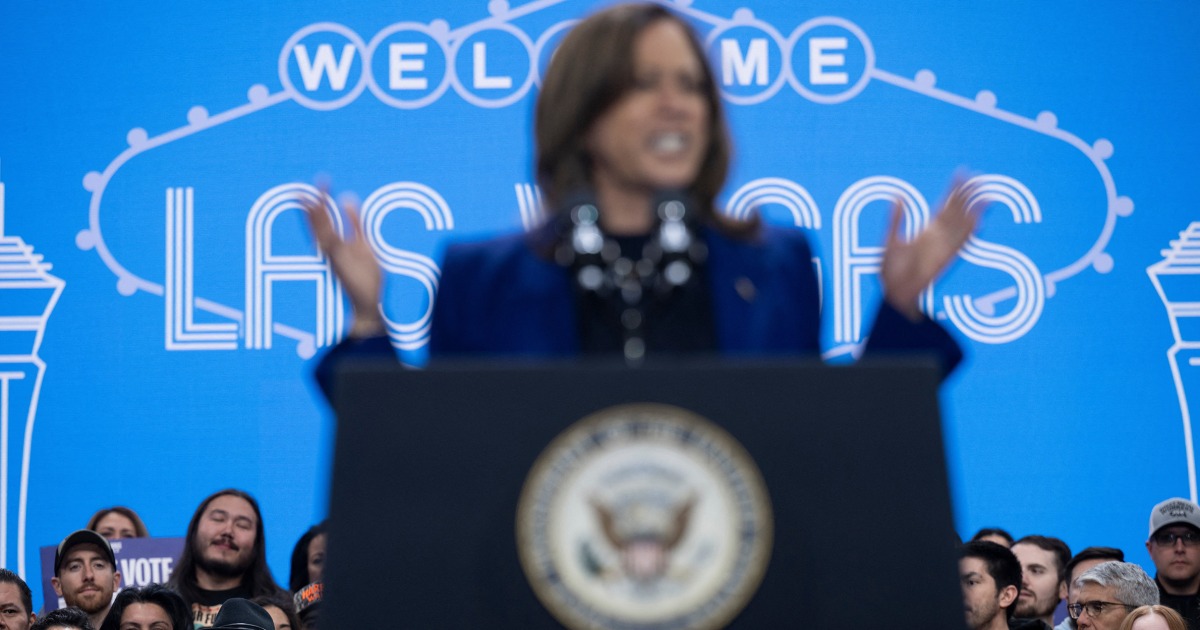
NEW YORK — The U.S. stock market, Elon Musk's Tesla, banks and bitcoin all stormed higher Nov.
6 as investors made bets on what Donald Trump's return to the White House will mean for the economy and the world. Among the losers the market sees: the renewable-energy industry and potentially anyone worried about higher inflation. The S&P 500 rallied 2.
5 percent Wednesday for its best trading session in nearly two years. The Dow Jones Industrial Average surged 3.6 percent, while the Nasdaq composite jumped 3 percent.
All three indexes topped records they had set in recent weeks. The U.S.
stock market has historically tended to rise regardless of which party wins the White House, with Democrats scoring bigger average gains since 1945. But Republican control could mean big shifts in the winning and losing industries underneath the surface, and investors are adding to bets built earlier on what the higher tariffs, lower tax rates and lighter regulation that Trump favors will mean. "The markets are scrambling to figure out what happens next, but for the time being, the market is pricing in a higher growth and higher inflation outlook," Peter Esho of Esho Capital said.
Of course, how much change Trump effects in his second term will likely depend on whether his fellow Republicans win control of Congress, and that's still to be determined. That could leave room for snaps back in some of Wednesday's big knee-jerk movements. Nevertheless, the market is cleaving between rather clear winners and losers following Trump's dramatic win.
Among the gainers were bank stocks. They led the market higher, in part on hopes that a stronger economy would mean more customers getting loans and paying them back with interest. They also rallied on hopes for lighter regulation from a Republican White House.
JPMorgan Chase soared 11.5 percent, and financial stocks had the biggest gain by far among the 11 sectors that make up the S&P 500. Capital One Financial climbed 15 percent, and Discover Financial jumped 20.
2 percent for some of the market's biggest gains on speculation their pending merger will more easily get federal clearance under Trump. Cryptocurrency was another winner. Trump has pledged to make the country "the crypto capital of the planet" and create a "strategic reserve" of bitcoin.
The price of bitcoin hit an all-time high above $76,480, according to CoinDesk, and was recently just under $76,100. Companies in the industry also jumped, including a 31 percent leap for crypto trading platform Coinbase. Tesla also gained ground.
Musk, its CEO, has become a close ally of Trump, exhorting the former president's run. While Trump may end up hurting the electric-vehicle industry broadly by limiting government subsidies, analysts said Tesla could gain somewhat of an advantage by already being such a big player in the industry. Tesla revved 14.
8 percent higher, while smaller rival Rivian Automotive fell 8.3 percent. Trump Media & Technology Group rose, too.
The company behind the president-elect's Truth Social platform rose 5.9 percent after climbing nearly 35 percent earlier in the day. It regularly trades more on Trump's popularity than on prospects for its profits.
Its rise came even after it filed unaudited financial documents with regulators late Tuesday saying it lost $19.2 million during the latest quarter and that its sales weakened from a year earlier. A Trump-led Washington could push for tougher enforcement of the nation's borders, which could mean more business for companies that work with U.
S. Immigration and Customs Enforcement, or ICE. GEO Group, which runs ICE processing centers, surged 42.
1 percent. Stocks of smaller companies also benefited Wednesday because Trump's America-first policies could help companies that focus on customers within the United States, rather than big multinationals that could be hurt by increased tariffs and protectionism. The Russell 2000 index, which is seen as more domestically focused than the big stocks in the S&P 500, jumped 5.
8 percent. On the losing side were government bond prices. Investors see Trump's policies potentially leading to stronger economic growth, which helps push prices down for Treasurys and their yields up.
Tax cuts under Trump could also further swell the U.S. government's deficit, which would increase its borrowing needs and force yields even higher.
The yield on the 10-year Treasury jumped to 4.43 percent from 4.29 percent late Tuesday, which is considered a major move for the bond market.
It's up substantially from August, when it was below 4 percent. Inflation worries also are ticking higher. Investors also see Trump's policies likely adding to future inflation, particularly tariffs, which can add costs to U.
S. households' bills. "Trump keeps openly telling people that he will increase tariffs not just on China but with every trade partner," said Andrzej Skiba, head of BlueBay U.
S. Fixed Income at RBC Global Asset Management. "We're talking 10 percent tariffs across all global partners.
This is a big deal because this could add 1 percent to inflation. If you add 1 percent to next year's inflation numbers, we should say bye to rate cuts." A drop-off in immigration could also mean a crunch of available workers for employers, which could force companies to raise wages for workers faster and put more upward pressure on inflation.
Meanwhile, the outlook for the Federal Reserve to cut interest rate is now muddled. Much of Wall Street's run to records this year was built on expectations of lower borrowing costs because inflation seems to be heading back down to the central bank's 2 percent target. Easier interest rates help boost the economy, but they can also give inflation more fuel.
The Fed will announce its latest decision on interest rates Thursday, where the expectation is still for a cut, according to data from CME Group. But traders are already paring back forecasts for how many cuts will be approved through the middle of next year. Also, foreign currencies aren't likely to do as well against the dollar under the new administration.
Trump has vowed to sharply hike tariffs on imports from China, Mexico and other countries, raising worries about trade wars and disruptions to the global economy. A measure of the U.S.
dollar's value against several major currencies on Wednesday climbed 1.6 percent, which means that the others fell. The euro sank 1.
5 percent, and the South Korean won fell 1.2 percent The Mexican peso, which has been falling against the dollar since the summer, in part on worries about a possible Trump re-election, fell early in the day but then pared its loss. Shares of renewable energy businesses were another loser.
Trump is a fan of fossil fuels, encouraging production of oil and natural gas. His win sent solar stocks sharply lower, including a 10.1 percent fall for First Solar and 16.
8 percent slide for Enphase Energy..














